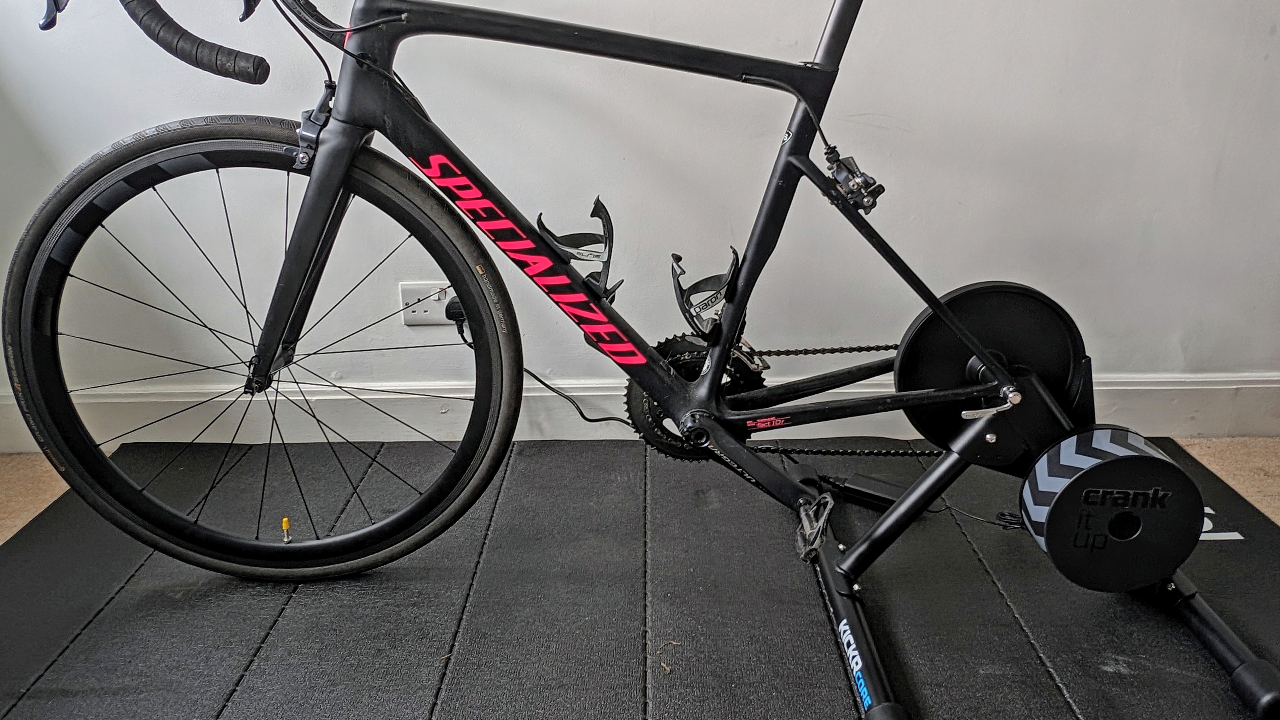
The Wahoo Kickr Core has been my go-to direct drive turbo trainer recommendation since it was released in September 2018. In fact, I reviewed the Wahoo Kickr Core last year, five years on from its debut, and could still only find minor faults, which can be overlooked at its price point. So, when Wahoo and Zwift announced their Wahoo Kickr Core Zwift One collaboration in February 2024, I was intrigued.
The concept is ingenious. Traditionally, you install a cassette (the cogs on your bike’s rear wheel) on the turbo trainer, and increase or decrease the trainer’s resistance when free-riding (and not following an ERG-mode workout) by shifting up and down with your bike’s drivetrain. The Zwift One cog replaces the cassette with a single-speed cog, and instead of controlling resistance with your bike’s gears, you modify resistance with two handlebar-mounted buttons.
How does this compare to that traditional cassette-based set-up? And will the Wahoo Kickr Core Zwift One knock its cassette cousin from my top spot as the best turbo trainer?
Wahoo Kickr Core Zwift One: Price And Availability
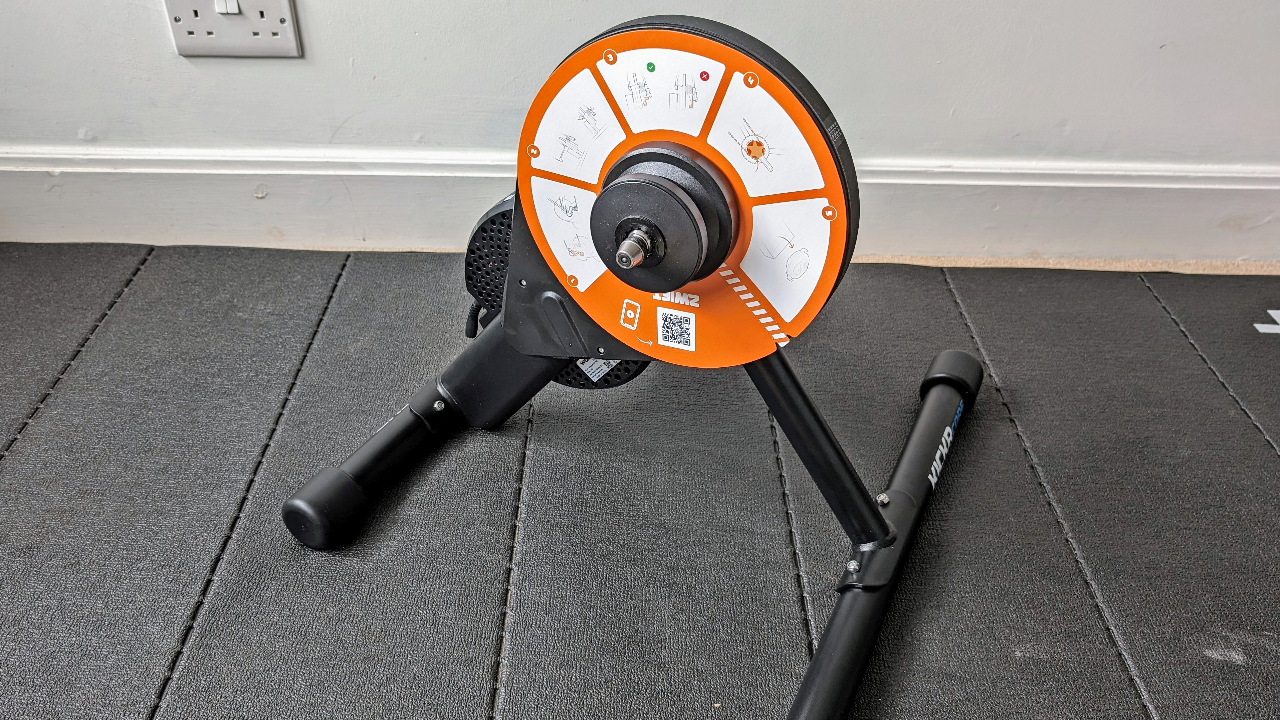
The Wahoo Kickr Core Zwift One was released in February 2024 and costs $599.99 in the US and £549.99 in the UK. When the Wahoo Kickr Core was first launched it cost $899.99/£699.99 and didn’t include a pre-installed cassette, so the total set-up has come down by roughly $400/£200—bucking the trend seen across the rest of cycling. What’s more, it includes a free 12-month Zwift membership (RRP $149.99/£129.99), which reduces the actual cost of your investment to $450/£420.
How I Tested This Turbo Trainer
I logged 10 hours of turbo training on the Kickr Core Zwift One. I’m currently training for the Paris-Roubaix Challenge and I performed several long interval-based workout sessions on the training apps Zwift and TrainerRoad. I also spent time free-riding in Zwift’s virtual worlds and attempted (and failed) to test it in other virtual world-based training programs, such as Rouvy and MyWhoosh. I have experience with most of the best turbo trainers and smart bikes, including the cassette version of the Wahoo Kickr Core, Tacx’s top-of-the-range Neo 3M, and Wahoo’s Kickr Bike V2 smart bike.
Features
The Zwift One edition of the Wahoo Kickr Core is a carbon copy of the standard one, aside from the new Zwift One cog replacing a cassette. That means you get the same maximum output (1,800W), simulated incline (16%) and power accuracy (+/- 2%) as the Kickr Core that’s been around since September 2018.
While there are direct drive turbo trainers that can beat all these stats (most notably the Tacx Neo 3M), it’s important not to get fooled into thinking bigger is better. Even serious club riders aren’t able to exceed that maximum power output for more than a second or two at best, while you’d have to be a masochist to want to ride up gradients above 16% for sustained periods. The power accuracy may be an issue if you’re a professional athlete following strict interval sessions, but even the best turbo trainers have a +/- 1% margin of error, so it’s a minor sacrifice to make for substantial savings on the cost of a premium set-up.
The main difference between the standard Wahoo Kickr Core and this update is the Zwift One cog. The 14-tooth sprocket comes installed on the unit and is compatible with most 8- to 12-speed bikes. This is different from the cassette version, which required the purchase of a separate driver and the installation of a drivetrain-specific cassette if your bike didn’t have a Shimano/SRAM road set-up. This makes the Kickr Core Zwift One more accessible to Campagnolo and mountain bike/gravel bike users, whose drivetrains aren’t compatible with the standard Wahoo Kickr Core out of the box. It also means if you have multiple bikes, or multiple riders want to use the turbo trainer, you can swap the bikes over without having to remove and install different cassettes and drivers.
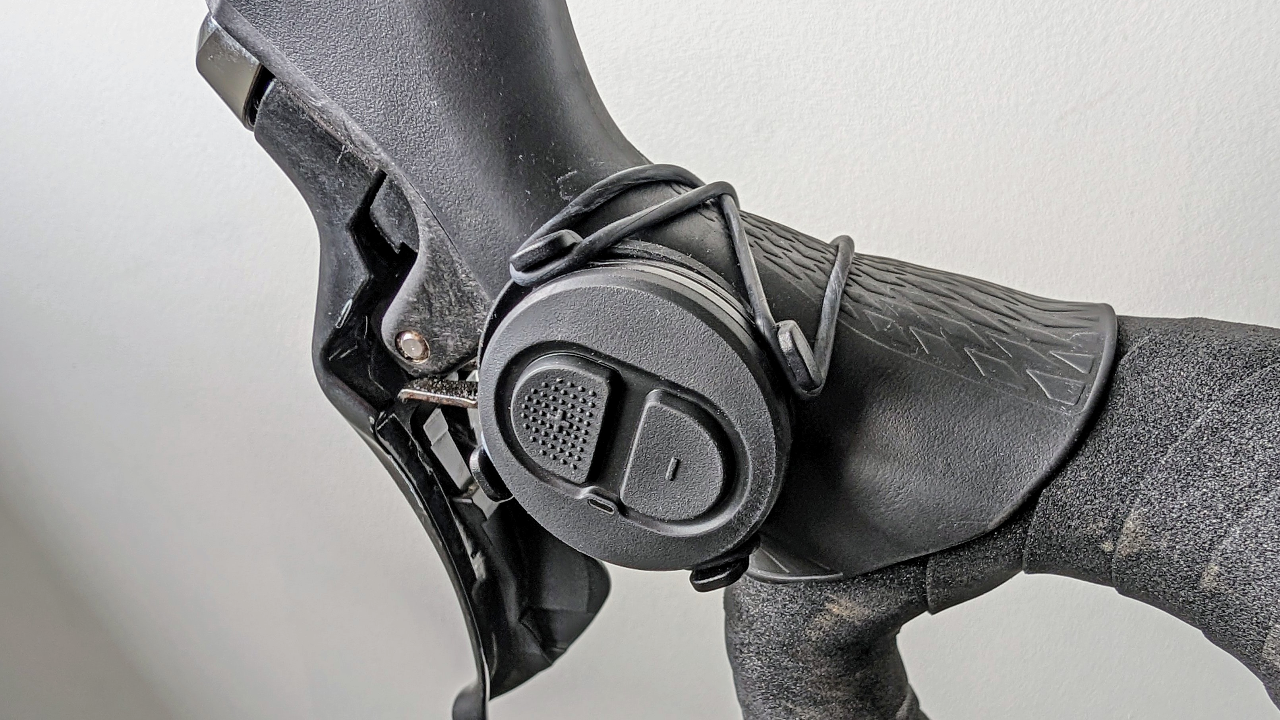
The resistance is controlled by a Click button rather than shifting between gears on a bike’s drivetrain. The virtual drivetrain has a 24-speed drivetrain and a wide enough gear ratio for inching your way up Watopia’s inclines or putting down the hammer on the flats without spinning out. During ERG mode workouts, it can also increase and decrease the difficulty of the session—ideal if you’re struggling with a hard drill and want to dial it down rather than stopping. The Bluetooth button can be mounted in multiple locations on a handlebar, whether you have flat, drop or triathlon bars, and its coin battery is said to last 100 hours.
The Kickr Zwift One has one major flaw: It’s only compatible with Zwift. While the cog can be used in ERG mode in platforms such as TrainerRoad, if you want to simulate free-riding and shifting between virtual gears, you won’t be able to on rival platforms like Rouvy and MyWhoosh.
The Set-Up
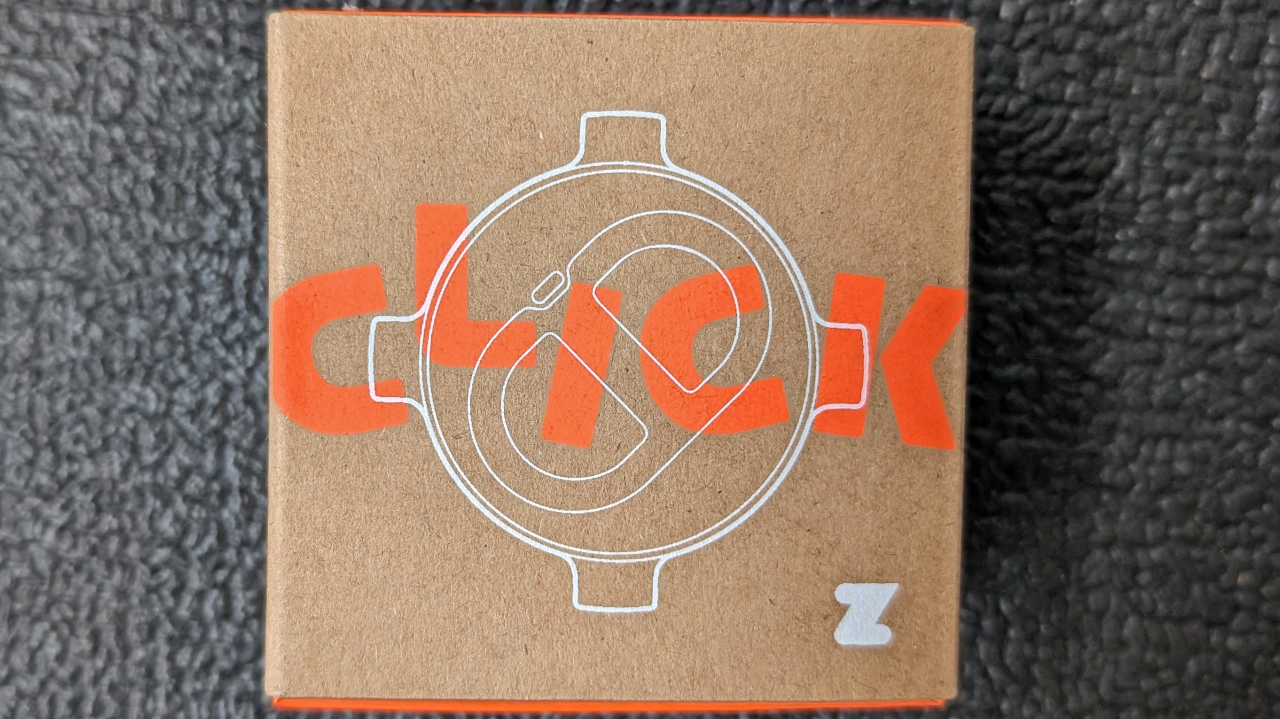
The Kickr Core Zwift One requires some self-assembly but should pose no issues. In the box, you’ll find the main unit, two stabilizing feet, instructions and tools, and it’s hard to get it wrong. Unlike previous Kickr Core models, the Zwift One cog is installed, so once the feet are on the base unit, you just need to remove the back wheel from your bike and slot it in place on the turbo.
The Click button is a cinch to install on your handlebars. You can put it in various spots, but I found that the inside of the right hood allowed me to easily shift up and down with my thumb in my standard indoor riding position.
The Ride
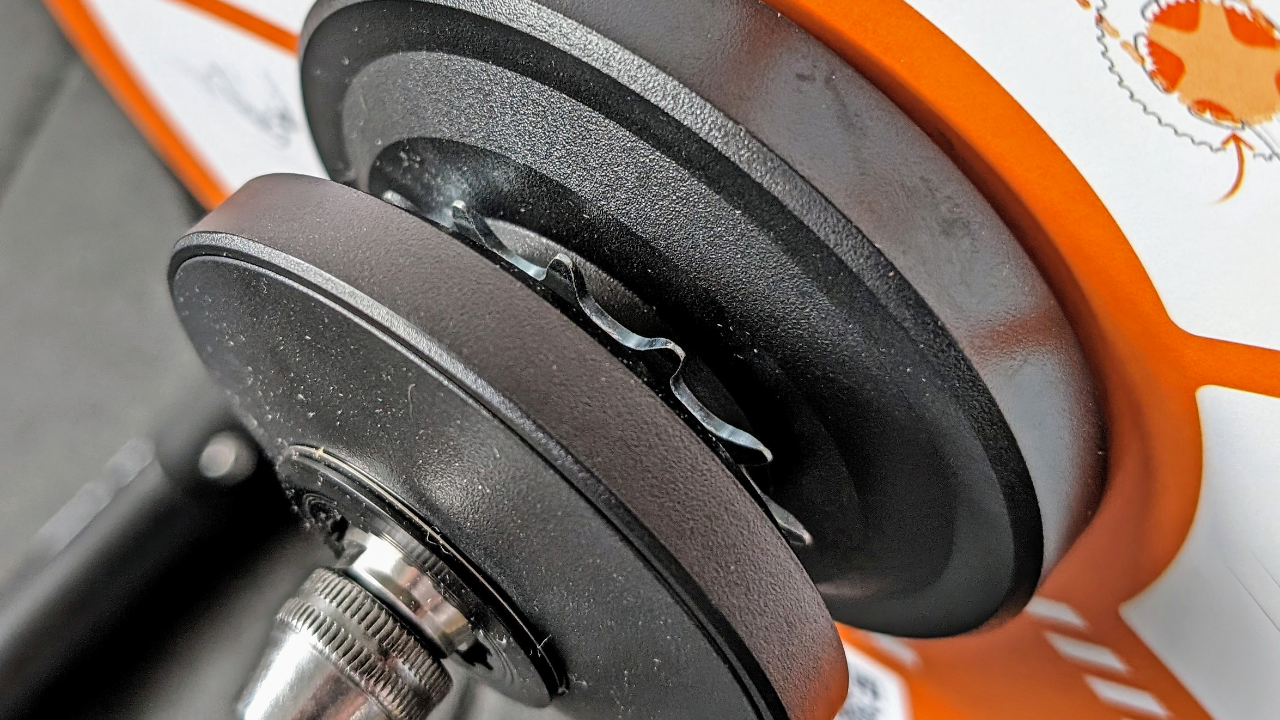
The Kickr Core Zwift One has a similar ride feel to the cassette version. It has the same 5.4kg flywheel, and the resistance feels smooth and controlled, even when completing intervals that quickly switch from anaerobic efforts to recovery. In free-ride mode, the shifts in gradients feel realistic, and a sharp hill will soon have you out of the saddle.
However, there are notable differences. The single cog design seemed quieter than the cassette version I tried previously, while there are no clunks of the derailleur between gear shifts. The 24-speed virtual drivetrain had no noticeable jumps between gears, and it solves the issue you can have with a cassette where you start to cross-chain or when you spin out after shifting between the big and small rings when downshifting quickly. Keeping track of what gear you’re in is easy and it’s displayed alongside speed, cadence and power output.
As with the cassette version, the main downside is the lack of lateral movement. This was noticeable when jumping from the Wahoo Kickr V6 with Axis feet to its cheaper sibling, and the latter has a stationary riding position, which started to get uncomfortable on training rides of an hour-plus.
Is The Wahoo Kickr Core Zwift One Worth It?
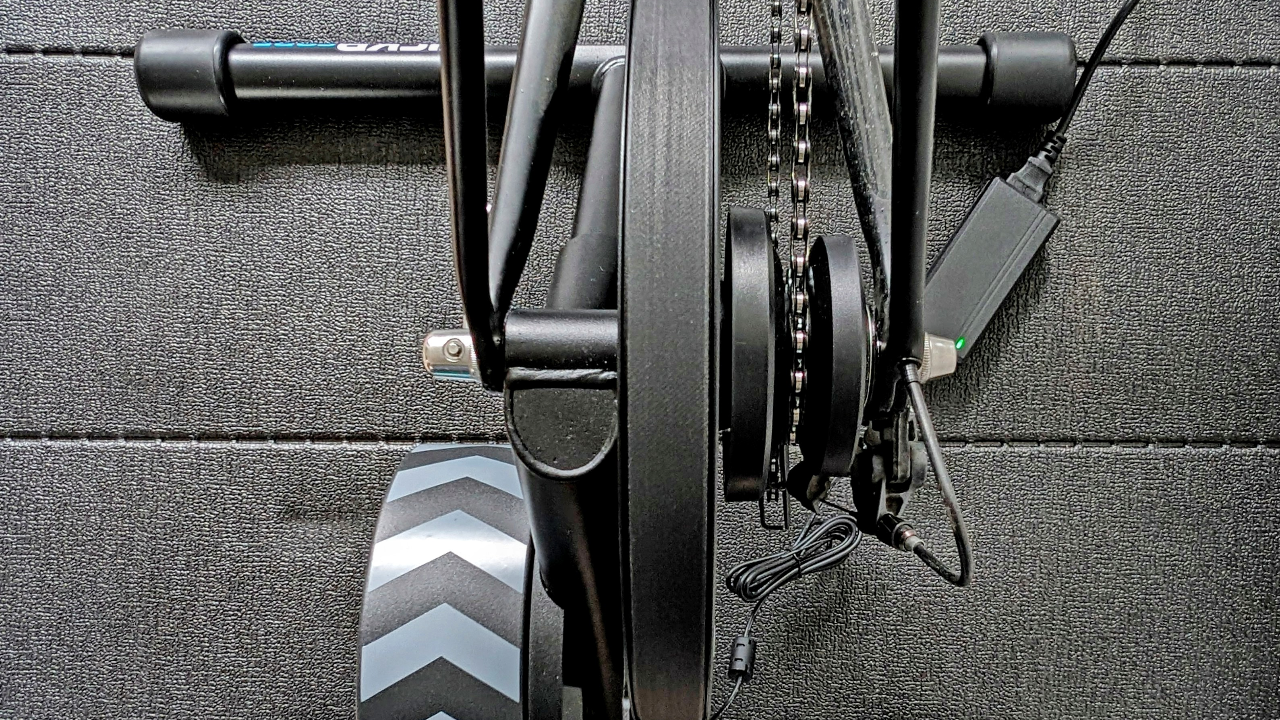
The Kickr Core Zwift One is the cheapest it has ever been, and when you consider that it also comes with a year’s subscription to Zwift, it’s hard to beat on cost. The Zwift One cog should last longer than a cassette because there’s no shifting between cogs to wear out the teeth, reducing long-term costs, while the fact that it can be used by multiple people could help you share the investment between others.
If you’re searching for the most cost-effective way to get started with Zwift, then it’s difficult to look beyond the Kickr Core Zwift One. The smart direct drive turbo trainer, pound for pound, is the best design available, and the addition of the Zwift One cog removes some of the hassles that can come with a cassette version. If you plan on using other training programs then you’re better off with the original Wahoo Kickr Core, but for Zwift and TrainerRoad, the Zwift One version takes some beating.







